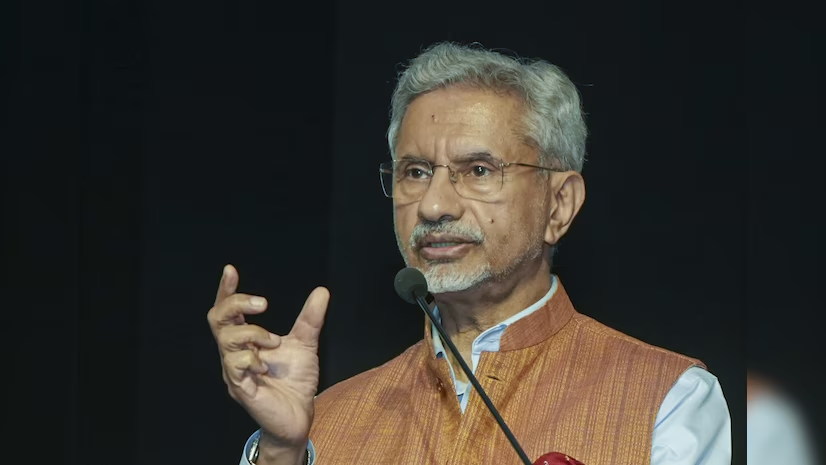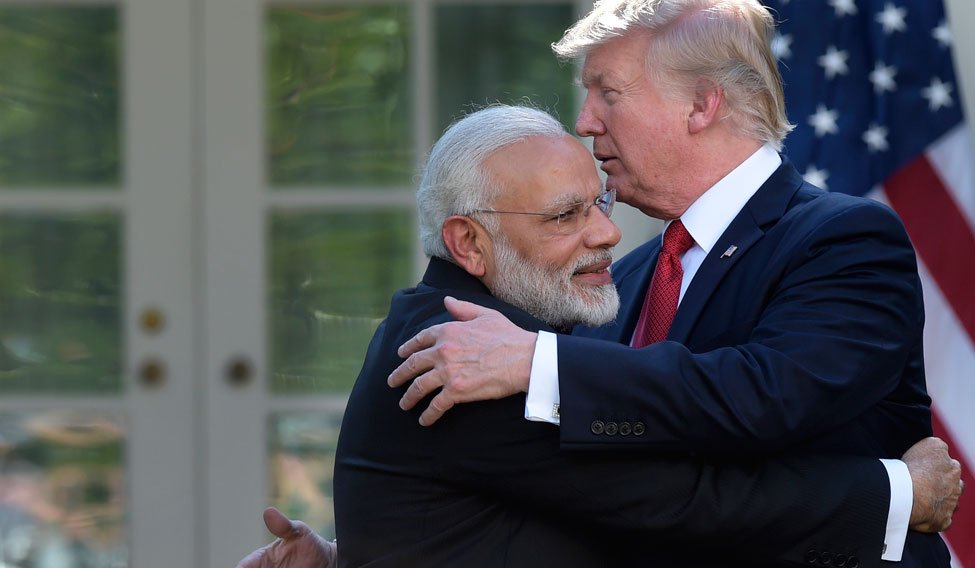How India’s Foreign Policy is Shaping a Multipolar World Amid Trump’s Return

Published: March 15, 2025 | 11:30 AM IST | Location: New Delhi, India
The Global Power Shift: India’s Rise Amid Trump’s Return
In a rapidly evolving global landscape, India’s External Affairs Minister S. Jaishankar has emerged as one of the most influential voices shaping international diplomacy. In an exclusive interview with The Financial Times, Jaishankar dissected the unpredictable nature of Donald Trump’s return to power, India’s rise as a global force, and the shift towards a multipolar world order.
“This was a long time coming,” Jaishankar remarked. “Maybe I took [Trump] more at face value.” His observations reflect a pragmatic and strategic approach to India’s foreign policy, one that is adaptive, confident, and forward-thinking.
Trump’s Foreign Policy: No Surprises for India
Jaishankar remains unfazed by Trump’s unpredictability. He sees Trump’s stance on global entanglements, protectionism, and “America First” policies as part of a broader shift.
“Americans have become weary of foreign commitments where they see more costs than benefits,” Jaishankar explained. “For years, India championed a multipolar world. Now, even the U.S. acknowledges it.”
Instead of resisting Trump’s unconventional diplomacy, India embraces pragmatism, making strategic adjustments to maintain strong ties while ensuring its own geopolitical autonomy.
Jaishankar vs. Kissinger: A New Diplomatic Paradigm
Jaishankar is often compared to Henry Kissinger, the legendary U.S. diplomat. However, he dismisses the comparison: “In my part of the world, that’s not necessarily a compliment.”
Kissinger’s policies in the 1970s tilted the U.S. towards China and Pakistan, sidelining India. “I profoundly disagreed with him on many issues,” Jaishankar asserted, arguing that over-investment in any relationship can cloud strategic judgment.
India’s foreign policy under Jaishankar focuses on strategic autonomy, maintaining strong partnerships with the U.S., Russia, and global players while not aligning exclusively with any one bloc.
India’s Vision for a New Global Order
Jaishankar advocates reforming outdated global institutions like the United Nations Security Council (UNSC). He warns against relying on a post-World War II order that no longer reflects contemporary realities.
“If we don’t update global governance, we risk a chaotic world… a Hobbesian state of nature,” he cautioned.
However, diplomatic tensions—such as Canada’s allegations regarding a Sikh separatist’s assassination in 2023—pose challenges to India’s global narrative. Despite these hurdles, Jaishankar remains steadfast in positioning India as a leading global power.
India’s Growing Confidence: Non-Western, Not Anti-Western
Jaishankar rejects the notion that India is drifting away from the West. Instead, he argues that India is asserting itself on its own terms.
“The old Indian elite believed modernity meant imitating the West. Today, India is more confident in being non-Western but not anti-Western,” he said.
On concerns that Modi’s BJP government promotes religious majoritarianism, Jaishankar is dismissive: “We are a secular country… Secularism does not mean suppressing one’s own identity.”
Trump’s America & India’s Strategic Play
While India acknowledges trade tensions with Trump’s America, Jaishankar remains optimistic about future economic cooperation. “I can see he [Trump] has concerns,” he noted, predicting a potential U.S.-India trade deal soon.
Unlike traditional treaty-based alliances, India’s global approach is flexible and interest-driven. Jaishankar sees partnerships like The Quad (India, U.S., Japan, Australia) as strategic alignments rather than rigid commitments.
India’s Russia Policy: Pragmatic & Historical
India’s continued purchase of Russian oil despite Western pressure has drawn scrutiny. Jaishankar remains resolute:
“What happens is that people often invoke principles when they want to persuade or pressure someone,” he observed.
India’s long-standing historical ties with Russia guide its decision-making. “If I have 80 years of data suggesting a relationship is stable, I will use that as my working assumption,” he stated.
India & China: A Fractured Relationship
When asked about the possibility of mending ties with China, Jaishankar was clear:
“You can’t have a bad situation on the border and a good relationship at the same time.”
The 2020 border clashes remain a significant obstacle. What if Trump strikes a deal with China that sidelines India? Jaishankar’s response:
“Life is full of what-ifs… You don’t spend life worrying about what-ifs. You spend your life preparing for what-ifs.”
Key Takeaways from Jaishankar’s Foreign Policy Approach:
✅ Multipolar World: India is shaping global diplomacy with a balanced, independent approach.
✅ Strategic Partnerships: India engages with the U.S., Russia, and the Global South without exclusive alignment.
✅ Economic & Trade Flexibility: India is resilient to geopolitical disruptions, negotiating new trade deals while maintaining energy security.
✅ Assertive Foreign Policy: India pushes for UN reforms, border security, and diplomatic autonomy.
Conclusion: The Future of India’s Global Role
Jaishankar’s strategic, pragmatic, and confident foreign policy is helping India navigate Trump’s America, growing regional tensions, and an evolving world order. His leadership reflects a modern, self-assured India that is ready to lead on the global stage.
As the global power balance shifts, India’s rise is inevitable, and Jaishankar’s vision is driving the country’s transformation into a true global superpower.


